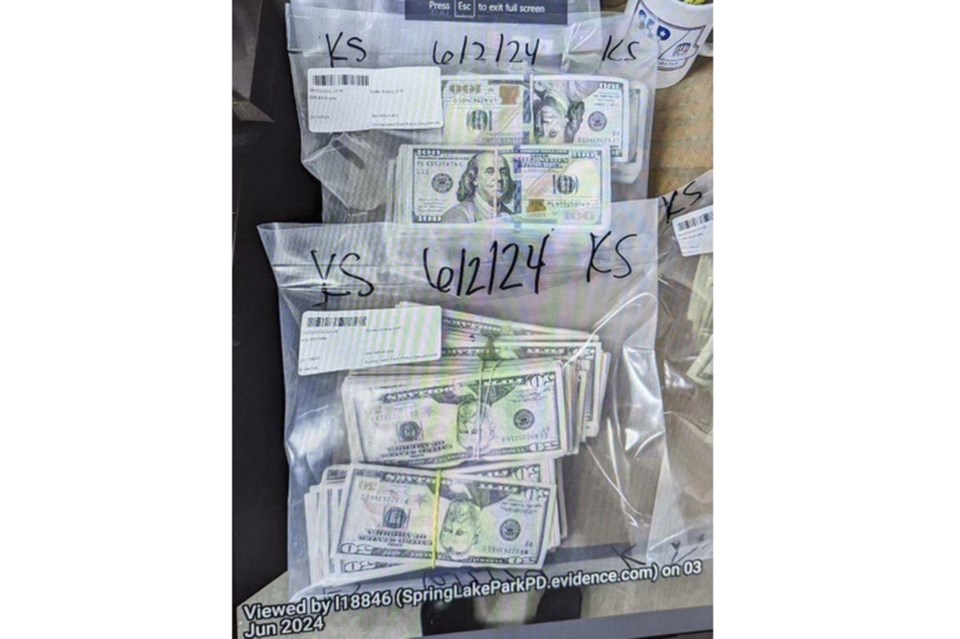MINNEAPOLIS (AP) — A new court document details what federal prosecutors in Minnesota say was a frantic effort by defendants to get a juror to vote for an acquittal in a pandemic fraud case.
Mukhtar Shariff is among five people convicted in the case earlier this year. In a supplement to a presentencing report for Shariff filed Monday, the U.S. Attorney’s Office in Minnesota alleges that Shariff and co-defendant Abdiaziz Farah communicated about a $120,000 cash bribe using an encrypted messaging app called Signal.
The filing says Shariff deleted the app on June 3, soon after he was ordered to surrender the phone to the FBI. But prosecutors said FBI computer analysts were able to recover the messages.
“100 for our freedom is nothing, bro, worth trying everything bro,” Farah wrote in one text to Shariff, prosecutors said. Three minutes later, he allegedly texted, “That's it bro. I have a good feeling she will come through and that's a lot of money for her family.”
The Associated Press left an email message on Tuesday with the attorneys representing Shariff and Farah.
Prosecutors say the defendants attempted to bribe a juror during a trial in connection with one of the country’s largest COVID-19-related fraud cases. The defendants were accused of conspiring to steal more than $40 million from a federal program that was supposed to feed children during the pandemic.
U.S. Attorney Andrew Luger described the alleged extravagant bribery scheme as “something out of a mob movie.”
Prosecutors said the defendants researched the juror’s personal information on social media, surveilled her, tracked her daily habits and bought a GPS device to install on her car. Authorities believe the defendants targeted the woman, known as “Juror #52,” because she was young and they believed that as the only person of color on the jury, she might be sympathetic to the defendants.
Ladan Mohamed Ali, 31, of Seattle, pleaded guilty in September to attempting to bribe the juror, and Abdimajid Mohamed Nur pleaded guilty to one count of bribery of a juror in July. Three others have pleaded not guilty. Farah was charged with bribery but it wasn't immediately clear if he entered a plea. Shariff has not been charged with bribery.
Nur admitted to recruiting Ali, who delivered the bribe money to the juror’s home in exchange for $150,000, prosecutors said.
Ali lied to Nur and said she had approached the juror at a bar, according to prosecutors. Ali claimed the juror wanted $500,000 in exchange for returning a not guilty verdict, and that the juror had instructed her to deliver the money when she’d be home alone. In reality, Ali had never spoken to the juror, prosecutors said.
Prosecutors say that in another Signal app exchange, as Farah was trying to obtain the $500,000, Ali wrote, “This girl is not playing. Tell him to sell a kidney babe if he has to!!!”
Nur had given Ali $200,000 in cash, all of which was intended to be used to bribe the juror, prosecutors said. They added that in June, Ali knocked on the juror’s door and was greeted by a relative. Ali handed the gift bag to her and explained there would be more money if the juror voted to acquit, according to the prosecutors, who said Ali only delivered $120,000 and kept the remaining $80,000 for herself.
The juror called the police, setting off the FBI investigation.
The Associated Press



